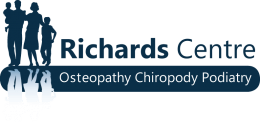Do you have a Frozen shoulder? We have a solution
Causes of a frozen shoulder
On average, 3% of the total population is affected by Frozen shoulder. It is a painful and difficult condition that causes restriction of movement or immobility of the shoulder. There is not an exact cause that can be attributed to frozen shoulder.
But an injury or trauma to the shoulder joint may act as a trigger for the condition. Diabetes and other diseases are also predisposing factors for the same. Both passive and active movement of the shoulder is restricted.
Frozen shoulder can be defined as that awful painful condition that limits the movement of the shoulder. The shoulder capsule may get inflamed and thickened, which makes them sticky, which accelerated the inflammation to a higher level bringing the volume of synovial fluid reduced within the joint.
Osteopathy can help treat and control the condition by enhancing the range of motion of the shoulder, thus decreasing the shoulder pain produced as a result of the condition. Osteopathy physical therapy can assure a higher recovery rate by its efficient diagnosis and proper treatment plan adopted.
Causes of Frozen shoulder

Frozen shoulder occurs as a result of the inflammation of the shoulder joint. When the tissues of the joint, get sticky, that allows the movement, it restricts the motion. Reduction in the use of the shoulder may also affect the condition to develop.
Trauma or injury is also an etiology for the disease condition, where shoulder movement is limited ( after wrist fracture, continuously keeping the arm in a sling, the shoulder joint is not free to move). Following a heart attack, breast cancer, stroke, or other surgeries, certain shoulder derangements such as partial rotator cuff tear, bursitis, biceps tendinitis, impingement, and arthritis can sometimes lead to frozen shoulder symptoms.
Certain diseases such as autoimmune diseases ( where the body’s immune response is altered as a result of which the body starts attacking its cells), diabetes, thyroid dysfunction serve as risk factors. But people with no other etiology or medical history can also develop a frozen shoulder.
When not used properly, following shoulder surgery, or injury and fracture, a frozen shoulder can occur. Stiffness of joints along with pain may develop. Inflammation (chronic) also marks a reason for the shoulder not to be used.
Treatment aims to correct the shoulder as a whole. To enhance the range of motion of the shoulder, making use of less used, treatment of other medical conditions which led to the development of frozen shoulder is also done.
Frozen Shoulder Symptoms
The main symptom found when addressing a patient with a frozen shoulder is pain and limited range of movement. Frozen shoulder can be grouped into three phases, so the symptoms also depending upon the phase through which it passes.
- Freezing phrase -stiffness begins at this phrase. Aches or pains during both day and night, which alters the sleep and makes the patient awake., spasms that are sharp and catchy.
- Frozen phrase -further reduction in range of movement, an attempt of doing simple activities become painful.
- Defrosting phrase -patient returns to normal life and can do day-to-day activities, as movement slowly returns.
Pain (night pains are more dreadful) and deranged motion are the primary symptoms. Range of motion in active (when someone other than you forcefully lifting arm) and passive (your try with your power to raise the arm) movement of the shoulder is almost the same because a block for movement could be experienced when starting the movement, which makes you stop the attempt. Pain is usually felt when motion reaches its limit.
Other symptoms are:
- Stiffness felt in motion
- Aching pain over the upper arm or outer shoulder
- Pain may persist for several months or years, will not go quickly
- Movement restriction
- The pain worsens at night
- Tightness of shoulder, making it difficult to perform daily activities (brushing hair, dressing, etc).
Treatment For Frozen Shoulder -Osteopathic Approach

Osteopaths work in conjugation with GP or a medical practitioner. The treatment plan is mainly made depending upon the phase through which the passes. That in turn determines whether medications are to be prescribed or not. Osteopaths make use of subtle articulation techniques, soft tissue massage, and stretching to release the shoulder stiffness, and also treatment at the upper back, neck, and shoulder is performed that maintain the dissipation of shock and improve mobility of the body.
Osteopaths are well equipped to make a clear diagnosis of the condition by closely analyzing the predisposing factors that lead to the condition. Effective diagnosis is made by taking the complete medical history of the patient and performing adequate physical examinations.
Analysis of structure, any problems such as neck or elbow pain is addressed, using direct and indirect manipulative techniques stretch of soft tissues is carried out along with pressure techniques, dry needling ( to improve range of movement and reduce pain by enhancing functions) and a look into the lifestyle is done by the Osteopath.
Osteopaths also make use of shoulder exercises that help regain mobility. The treatment session is highly dependent on the phase through which the patient moves. And also the underlying cause for the disease ( trauma or injury may make a longer treatment).
As a result of which it may range from 4 to 13 sessions. Simple soft tissue massage and articulation techniques in Osteopathy decreases pain and inflammation that helps increase the range of movement and reduce pain.
Corrective advice on posture exercises that strengthens and promotes stretching is also advocated along with treatment carried out around the upper back and neck so that mobility could be increased in the shoulder joint.
At Richards Osteopathy
Osteopaths at Richards Osteopathy always work for our patient’s well-being and health. Our key focus is an early diagnosis of the condition along with treatment and rehabilitation of the patient that makes them more stable and strong, fully fit for the future.
Living with Frozen shoulder? Book your appointment for treatment, exercise programs, and advice!!!


